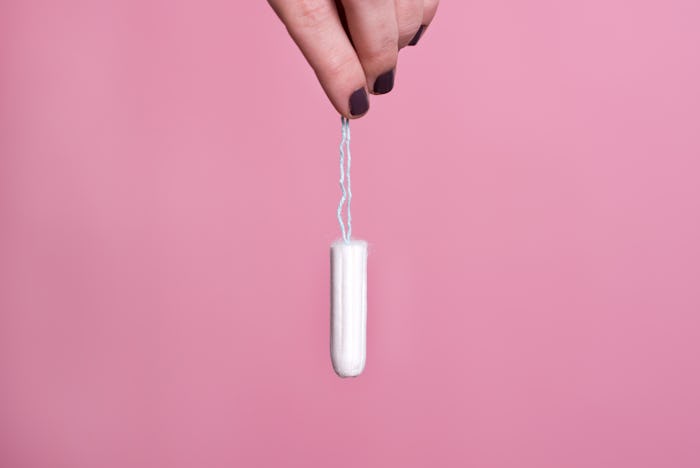Life

9 Hygiene Tips To Keep In Mind During Your Period
In a perfect world, every menstruating person would get open, honest information about the care and cleaning of a menses. Unfortunately, far too many women grow up feeling their period is shameful, and the info they get about it is misinformed (or sometimes straight-up wrong). That's why it's helpful to review the period hygiene tips no one ever taught you. Because even if you consider yourself a grown-ass women, possible you have some misconceptions about period hygiene.
That said, there's one thing to get out of the way first: periods are in no way inherently dirty. According to Self, the period is made up of some endometrial cells, blood, and occasionally clots. That's it. It is in no way harmful or shameful.
Even so, taking steps to maintain good health is smart. Although you don't need to take a pressure washer to your privates, maintaining some simple hygienic practices may help keep you free from infections and other potential health problems. In many ways, these tips will help you maintain your own comfort as well. Trying to get through the day on a damp pad can get super uncomfortable, if nothing else. So read through these period hygiene tips to make sure your care routine is only helping the cause.
1Wash Up With Mild Soap
Taking a daily is something most women need to stay clean during period week. But you don't need to implement some complicated cleansing routine. Washing your vulva with a mild, unscented soap is probably all the product you need, as noted by the National Health Service. No need to scrub, either: gentle cleansing is fine.
2Change Out Frequently
Your period is not the time to make products last as long as possible. According to Kids Health, changing your pad every three to four hours, or even more frequently for heavier flows, is the best way to practice good hygiene. Similarly, changing your tampon every four to eight hours is often cited as a good rule of thumb. It's probably best to err on the side of changing your pads and tampons too often.
3Carry A Spare Pair
Keeping a spare pair of underwear in your purse is just smart. Because if you do get a stain or some leakage, then it will happen on the worst possible day. A clean backup pair can help you feel fresh and dry the rest of the day.
4Don't Double Up
When you're facing a long day in the office or classroom, you may worry about not having enough time for bathroom breaks. This leads many women to use both a pad and tampon, just in case the tampon starts leaking. But according to The Health Site, using two methods at once may not encourage you to change your tampon often enough. It may be better to make sure you have adequate time for bathroom breaks.
5Replace Towels Often
Here's something you may not think about too often. According to Breastcancer.org, using fresh towels to dry off your vagina helps you avoid contact with the bacteria that can hang around damp towels. In general, keeping everything clean down there can ward off infections and other potential problems.
6Try Eco-Friendly Options
Chances are, you've stuck with the same brand of pads or tampons you've used since menarche. But if the idea of all that stuff ending up in a landfill makes you itch, then there are many new options you can consider. Some women recommend reusable pads as both economic and comfortable, and plenty of others love the flexible, reusable menstrual cups that are now widely available. Basically, you have many options to make sure your period week is both hygienic and kind to the environment.
7Wash Hands Before Using Restroom
Sometimes, it's a good idea to double up on your hand washing. According to the Children's Hospital of The King's Daughters, washing your hands both before and after changing your pad, tampon, or cup can ensure maximum cleanliness. After all, your hands come in contact with all kinds of stuff during the day.
8Keep Cleanup Simple
Sure, there are a variety of sprays, douches, and other products available to (allegedly) help you freshen up down there. But the truth is, douching can lead to health problems such as bacterial vaginosis, pelvic inflammatory disease, and even preterm births, according to the U.S. Department of Health and Human Services Office on Women's Health. Seriously: a little soap and water is plenty.
9Wash Your Cup
If you have a menstrual cup, then keeping it clean will help prevent potential health problems. According to the Diva Cup's website, you can wash your menstrual cup with warm water and mild soap in between uses. As further noted in the website, you can even boil it occasionally for maximum sterilization.